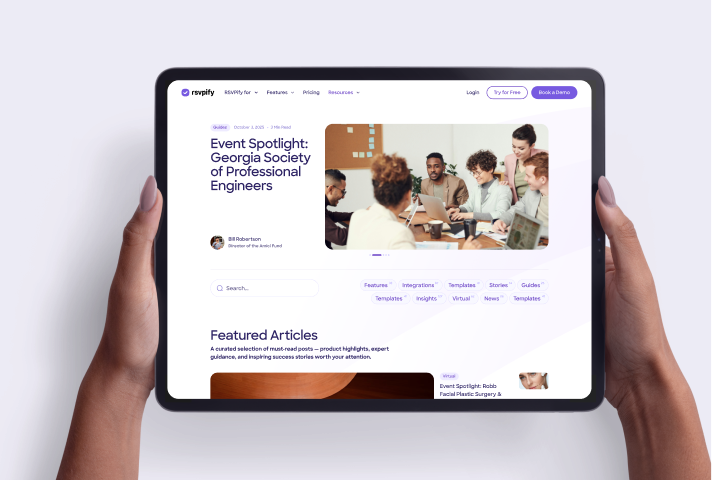Back to all posts
January 13, 2025
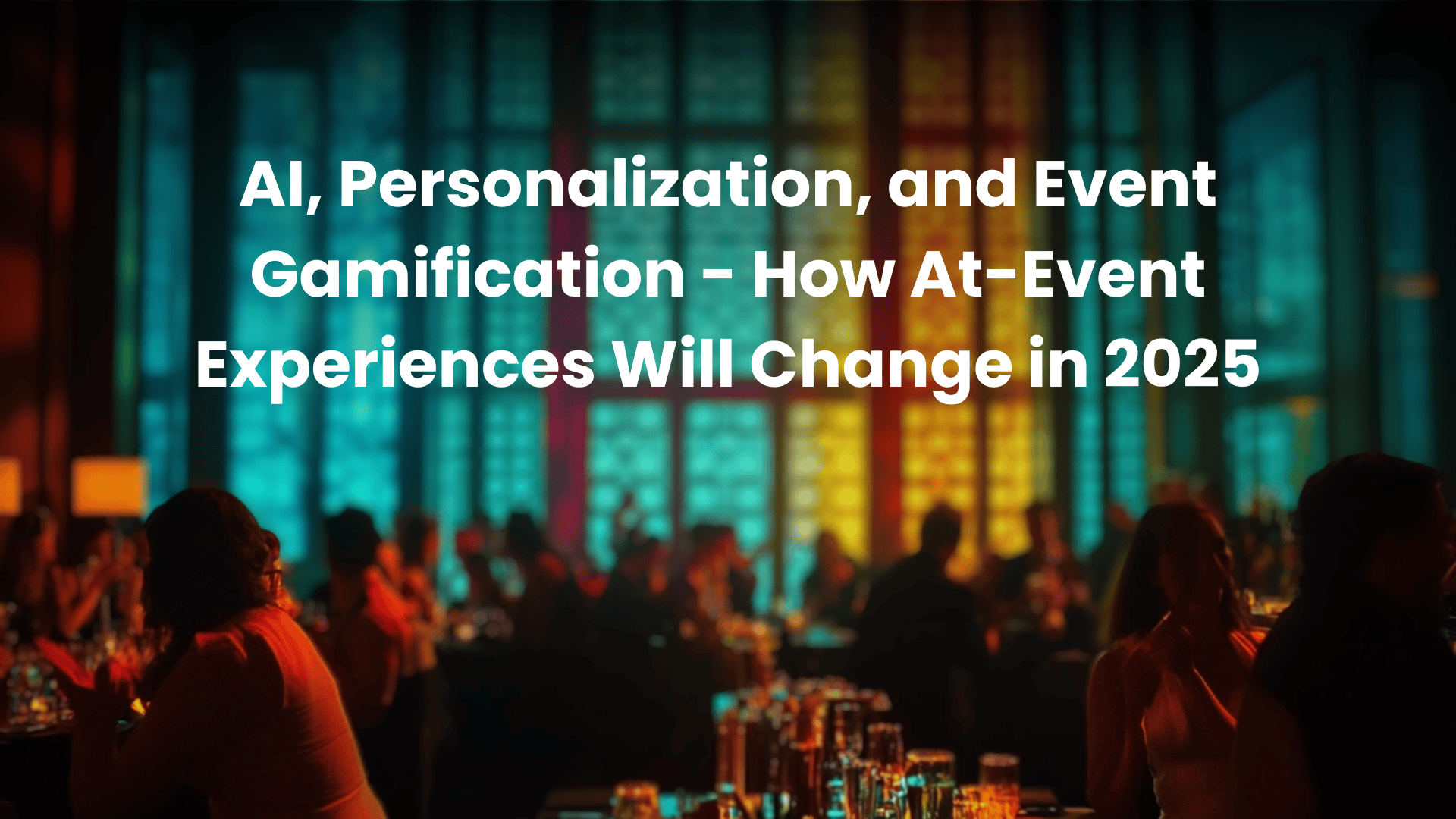
The events industry is on the brink of a transformative shift, driven by the increasing adoption of AI, advanced personalization, and gamification strategies. Event planners are harnessing these technologies to create more engaging and impactful experiences for attendees.
That was abundantly clear from the responses we received in our Future of Events survey - not only that these trends were top of mind for our survey respondents, but also just how many innovative ideas and plans they were already considering for their 2025 event calendar. Here's what they had to share with us.
Personalization is no longer just a luxury; it’s an expectation. At least that's what our event professionals had to say:
19.5% of event planners believe personalization will be extremely impactful in 2025.
46.8% see it as very impactful.
22.1% think it will be moderately impactful.
Only 1.3% think it won’t be impactful at all.
Why Event Personalization Matters: Attendees now expect tailored content, personalized agendas, and individualized interactions. These customized experiences help build deeper connections, enhance satisfaction, and differentiate events in a crowded market.
Challenges in Execution: While the benefits are clear, personalization requires significant resources, data insights, and the right tools. Many planners report that limited budgets and technology barriers can hinder their ability to deliver highly personalized experiences.
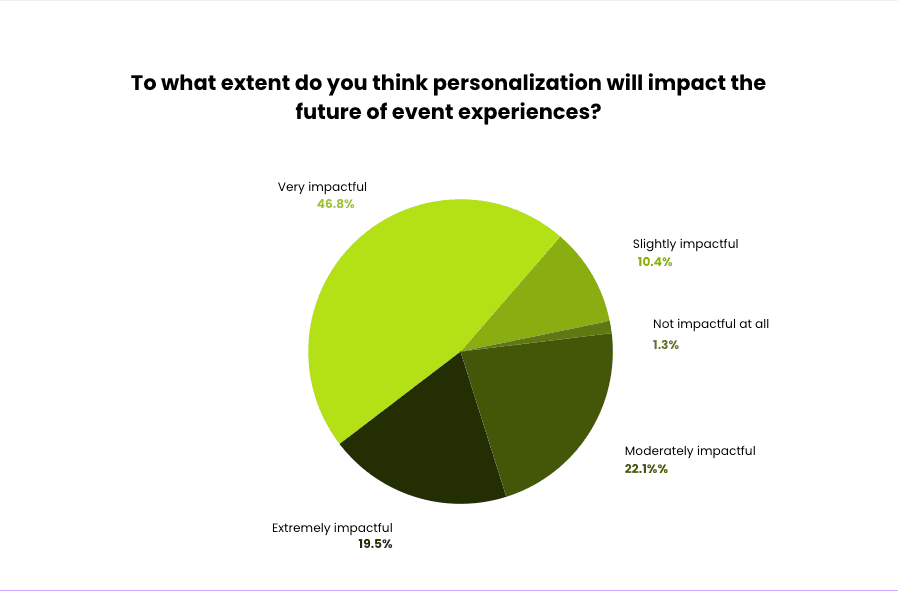
Gamification is becoming a popular strategy for boosting attendee engagement. The top gamification features planners are considering for 2025 include:
21.6% Live polling and voting
19.9% Prize giveaways or contests
15.9% Social media challenges or competitions
13.6% Interactive quizzes or trivia games
10.8% Interactive storytelling experiences
6.8% Leaderboards and point systems
4.5% Live/virtual scavenger hunts
1.7% Augmented reality (AR) experiences
Key Insights:
Gamification tools like live polling and social media challenges drive real-time interaction and create memorable experiences.
Simpler activities, such as prize giveaways, remain highly effective due to their broad appeal and low implementation complexity.
Emerging technologies like AR and virtual scavenger hunts have lower adoption rates but hold significant potential for future innovation.
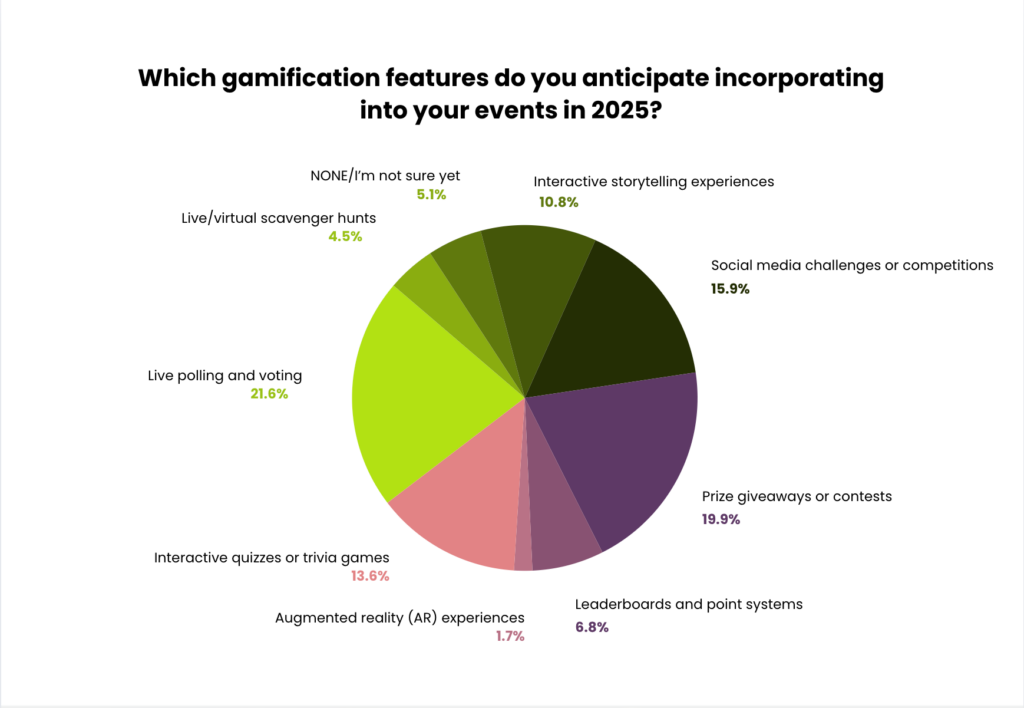
AI is enabling smarter, more efficient event management and attendee engagement. From AI-driven matchmaking algorithms for networking to chatbots that enhance customer service, the potential applications are vast. However, opinions on the importance of AI in event planning vary:
11.7% of planners see AI as extremely important.
15.6% consider it very important.
31.2% find it slightly important.
20.8% believe it’s moderately important.
Practical AI Applications:
Personalized Recommendations: AI can analyze attendee preferences and suggest sessions, booths, or networking opportunities.
Operational Efficiency: Automated tools for scheduling, check-ins, and analytics reduce the workload for event staff.
Enhanced Insights: Predictive analytics provide valuable data for planning future events.
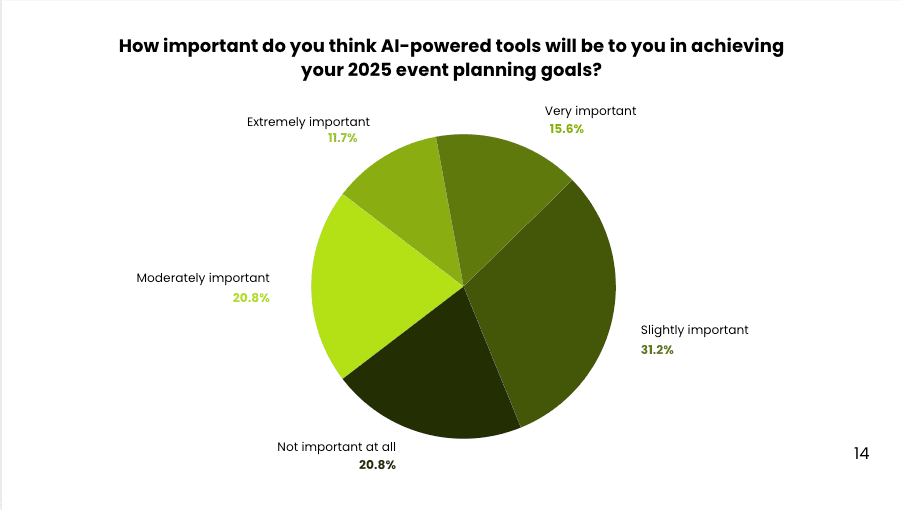
As AI, personalization, and gamification continue to evolve, several questions remain:
How can planners balance the demand for personalization with limited budgets and resources?
What role will emerging technologies like AR and VR play in gamifying events?
How can AI be leveraged to enhance both operational efficiency and attendee satisfaction?
Will attendee expectations for tailored experiences continue to rise, and how can planners stay ahead of these trends?
What new challenges will emerge as technology becomes more integrated into events?
By exploring these questions, event professionals can prepare for the next wave of innovation, ensuring their events remain relevant and impactful in 2025 and beyond.
About the Author
Adam Hausman co-founded RSVPify in 2013 and has been passionate about event tech and ticketing software ever since. Also founder of Greenlight Growth Marketing, he holds degrees from Indiana University (BA English/Psychology 2008) and the University of Illinois-Chicago (M.Ed. Secondary Education 2012). He lives in Maine with his wife, 2 kids, and 2 annoying cats.
Get the latest product updates, event planning tips, and industry insights — straight to your inbox.
You can unsubscribe at any time. Your email will only be used to send RSVPify updates and will never be shared.
